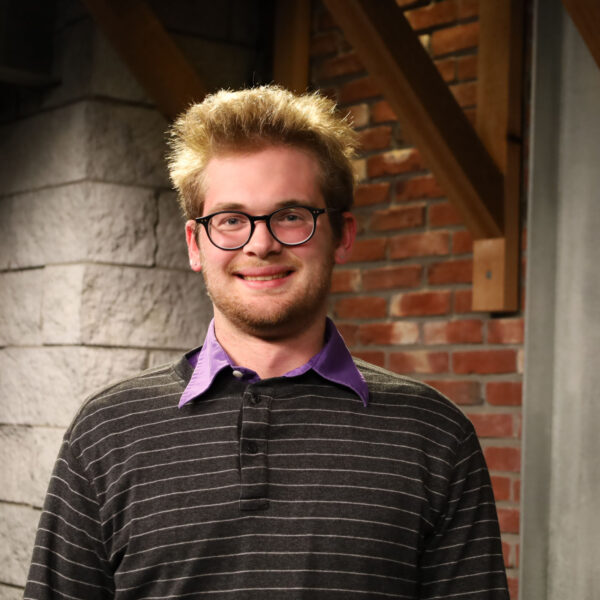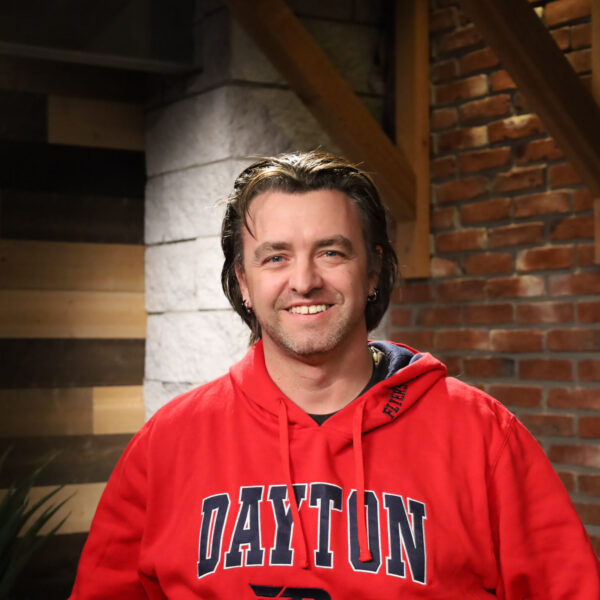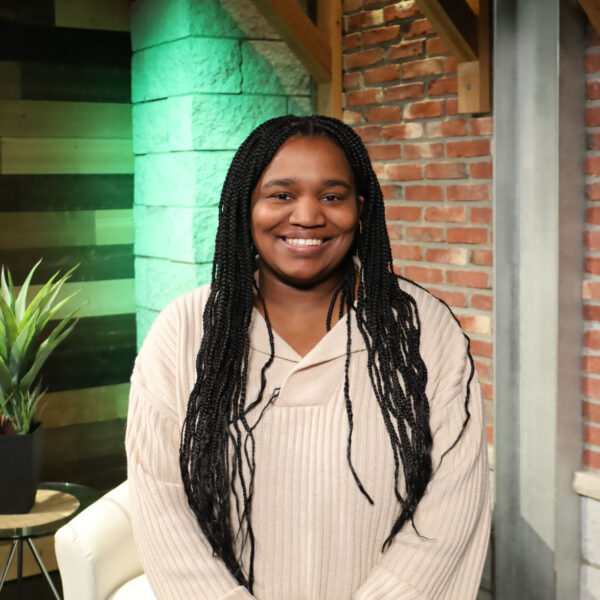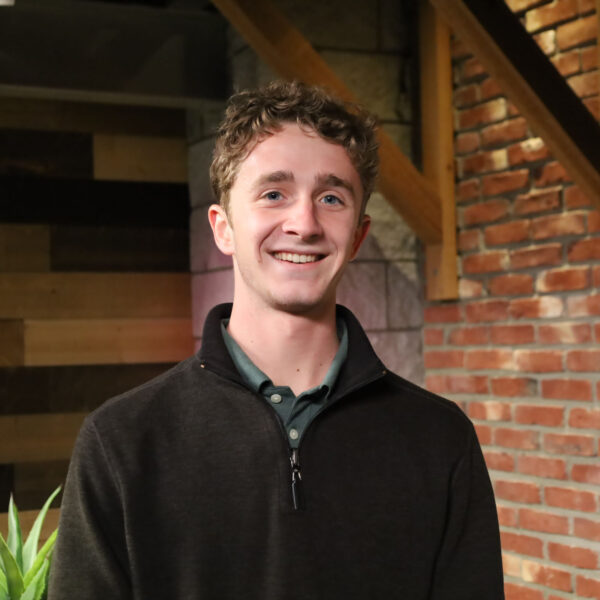Five student finalists will take the Umble Center stage Tuesday, Feb. 21 for the 50th annual C. Henry Smith Peace Oratorical Contest.
Since 1974, the contest has challenged students to apply Christian peace positions to current issues in society. This prompt may be broadly interpreted to include methods to address social inequalities and injustices.Contestants will share with students and the Goshen community about the ways they have recognized peace and social justice in their lives.
The five finalists in this year’s contest are: Daniel Eash-Scott, a junior history major from Wauwatosa, Wis.; Jakyra Green, a junior English Education major from Goshen; Mike Murrell, a junior communication major from Kettering, Ohio; Augusta Nafziger, a senior writing and music major from Weyers Cave, Va.; and Caleb Shenk, a junior accounting major from Goshen.
Eash-Scott’s speech is named “Peace behind the plate: Power and humility as an umpire.”
“It’s been odd working as a high school umpire,” he said, “because I don’t always feel comfortable in a position of power — but my job is to wield power, and I already live a privileged life every day. So I thought this would be a unique lens to examine how we think about the intersection of power and peace.”
Green’s speech, titled “The privilege of peace,” highlights “the illusion and privilege surrounding peace.”
“Peace works differently for Black people and is much more complex when you factor aspects like racism,” she said. “I was also looking at past finalists and didn’t see any Black people, so I wanted to share my experience and give them something to relate to.”
Murrell’s speech is called “The Pacifist Warrior.” A veteran in the US Army for 20 years, Murrell brings a unique perspective to the contest. Duane Stoltzfus, chair of the communication department, previously ran the speech contest and commented that having a veteran speaking in the contest is a first in “recent memory,” if not ever.
Murrell said that his speech focuses on “how my war experiences turned me into the pacifist I am today.” He hopes to “challenge the audience to reach out to veterans and communicate about peace, in an attempt to bridge the gap between the warriors and the pacifists of the world.”
Nafziger’s speech is titled “No longer on the same page: How the decline of local news is damaging our democracy.”
She chose to participate in the contest to “share this issue that not a lot of people know about or the extent to which it’s happening.”
“[At first] I couldn’t think of a specific issue I wanted to talk about,” Nafziger added. “But, then I read an op-ed and didn’t know it was such a big issue. [I thought] this would be interesting to write about.”
Shenk’s speech, called “Protesting taxation as a peace-seeking accountant,” centers on the conflict he’s felt as an accountant and Mennonite. “As I started my internship this semester,” Shenk said, “I realized that I simultaneously enjoyed the work and felt personally conflicted. I’ve wrestled with the issue of taxes that go to the military before, but my internship has made it concrete.”
Participating in the contest allows students to “be a part of a tradition of students speaking about peace and justice-related issues that are near and dear to their hearts, [something that] students here have been doing for over a hundred years,” said Anna Groff, assistant professor of communication and second-time director of the contest.
Groff has worked with the students since early January by providing written feedback and encouraging students to “identify someone on campus that they want to work with to continue to polish the speech.”
Joshua Weaver, a high school teacher at Bethany Christian Schools and previous speech and debate coach, has also helped the speakers practice their delivery on Umble’s stage.
The judges this year are Elizabeth Miller, director of the Institute for the Study of Global Anabaptism, director of the Mennonite Historical Library and an associate professor of history; Malinda Berry, associate professor of theology and ethics at Anabaptist Mennonite Biblical Seminary; and Gilberto Perez Jr., vice president for student life. Judges will be evaluating students on both content and delivery.
The contest is free and open to the public. Students can receive convocation credit and it will be live-streamed at goshen.edu/livestream.







